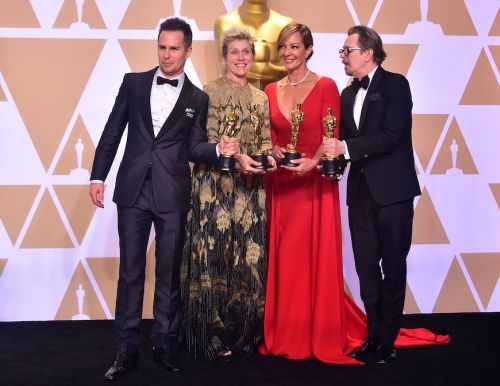I love the Oscars, but why do we seek approval from total strangers?
The Oscars are coming up on February 24, which makes me wonder: Why do we care if celebrities win shiny awards anyway? There's a scientific explanation.

When the Academy of Motion Picture Arts and Sciences announces the Oscar nominees, the Twitterverse responds like clockwork with equal parts criticism and congratulation, pecked out as pithy 280-character commentary. This year, the Academy snubbed Timothée Chalamet for his role in Beautiful Boy. (Twitter is sad.) Black Panther made history as the first film in the superhero genre to be nominated for the best picture category. (Most people are psyched.) Lady Gaga is nominated for best actress in a leading role. (And, of course, the people of the Internet have feelings about it.)
We’ll have to wait until February 24 to see how it unfolds, but all the chatter surrounding the big show raises the question: Why put so much weight on the end of a sentence that begins “And the award goes to…”? And why do 33 million people tune in to watch the Academy validate—or veto—their box-office heroes?
The pass-the-popcorn version of public approval fulfills a basic human need, says Jennifer Guttman, PsyD, the author of A Path to Sustainable Life Satisfaction. “We crave validation because as social beings we feel comfort in a ‘group think’ mentality,” she says. “It’s reassuring to believe that other people think the way we do because it gives us a feeling that we’re ‘right’ about our choices and behaviors.” The only thing more fun than declaring your undying love for Bradley Cooper is having millions of people agree that he’s a total dreamboat, right?
“Award shows like the Oscars are exciting and entertaining because they reinforce our belief that people thrive on external reinforcement.” —Dr. Jennifer Guttman
Something happens on a meta-level when you watch an awards show, too. “The Oscars are exciting and entertaining because they reinforce our belief that people thrive on external reinforcement,” says Dr. Guttman. “Even people who have already achieved celebrity-status seem captivated by what others think about them.” Your own quest for approval from others is further legitimized by the spectacle, she says.
When the stakes are clear, as they are throughout the marathon telecast that is the Oscars, we covet public validation even more, according to Gail Saltz, MD, an associate professor of psychiatry at Weill-Cornell School of Medicine. Non-famous folk tend to replicate that pattern through social media.
Social media has created a way to quantify praise and approval, which feel like they’re getting a good grade from their peers, says Dr. Saltz. In the short-run, all those notifications from Instagram feel pretty good. But here’s the catch: “It increases our feelings of self worth in the moment,” she says, “but not necessarily in the long run. This is why many people crave repeated praise [on social media] to regain that positive feeling.”
Should RBG be recognized at Best Feature Documentary (as it should!), I’ll be jazzed on Oscar night. And, okay, maybe throughout the next day, too. But by this time next year most of us will fail to recall who won in a given category. Like the likes you got on that perfectly-executed handstand you posted to Instagram back in November, any form of public validation is a finicky, ephemeral friend. Which is why you, me, and Amy Adams will be at the edge our seats as the ceremony begins.
Here’s why you should be wary of Instagram-sourced fitness inspiration. And how one model is raising her children to be confident in the age of social media.
Sign Up for Our Daily Newsletter
Get all the latest in wellness, trends, food, fitness, beauty, and more delivered right to your inbox.
Got it, you've been added to our email list.










